|
53.5° north latitude welcomes you to these pages. Or at least, I do, and I am at 53.5° north latitude, so I suppose I welcome you. Because I certainly do not speak for everyone. That would be presumptuous. Or something else. How would I know what glorified adjective describes what that would be? I don't even know what - insert inverted commas - speak for everyone means. But sometimes I do feel like I should speak for everyone, that only I know what should be said. Other times I want to speak for no one, not even myself. Sometimes the only thing that speaks for me is a song ringing through my ears. (We will cover the literary inspiration for that introduction below.) The past week was interposed between the joy only long days and warm weather can provide, and bouts of melancholy that can only - at least for me - result from a memorable book. In between, there were three new beers, and a few good sessions in the saddle but not enough to close out a segment, and weirdly no new words unless D-Bag is a new word. Let's get into the recap. 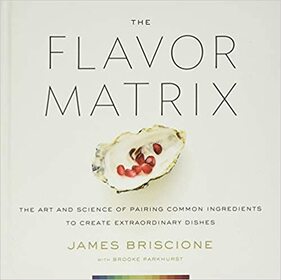 Reading Pile: I finished one book this week and finished one a couple of weeks ago but forgot to mention it until now. In the spirit of chronology, I will cover the forgotten one first. Book #18 for 2021 was "The Flavor Matrix". Now you might look at this and say that it is a cookbook, and you would not be incorrect, and then emboldened by your accurate categorization of said book you might question how I could so cavalierly count a cookbook toward my reading goal. And while this complete disregard for literary integrity inflames your righteous indignation, you might throw down the gauntlet of "What's Next?" and caustically suggest that I will next count the latest three-ingredient cookbook from the neighborhood grocery store checkout counter (cream of mushroom soup, French's fried onions, and Velveeta!) and then scream "What's happening with this world? DOES NO ONE READ ANYMORE?." But luckily you are not that kind of person, and instead you will merely tilt your head to the side and with a slightly furrowed brow, you will calmly say, "Interesting. That doesn't sound like something you typically count in your reading list. Tell me why you added this one." That will make my smile in silent recognition of why we are such good friends, and I will go on to explain my thought process, which will then cause you to smile back in silent recognition of why we are such good friends. There are numerous recipes in the book, which therefore qualifies it as a cookbook. I have lots of cookbooks and there is rarely a week that I do not look through "They Joy of Cooking (75th Anniversary Edition)" and "How to Cook Everything" for ideas, reminders, and inspiration. In fact, if I cannot get ideas and inspiration from a cookbook, it is no good to me. However, both are cookbooks and not books that one reads. With this in mind, I have never added either to the list of books "read" even if I have read most of both multiple times over the years. Even though The Flavor Matrix is in part a cookbook, I added it to my list of books read because it is a lot more than that. There is extensive science in the book explaining how each of the obvious and obtuse food pairings make sense. To do that, Matrix covers topics such as the difference between volatile and aromatic compounds and R and S isomers The index provides the main aromas for many foods. For example, one of the main aromas of a grape is beta-ionone. Who knew? The science and the amount I learned from this book justifies it entering the list of books read for the year. The bonus of this book is that the recipes are quite good. And as some D-Bag (see below) bellows into the abyss of the Internet that I have no integrity because only morons count cookbooks on lists of books read, we will once again smile at each other in silent recognition of our friendship. 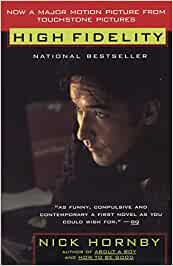 Switching gears completely, Book #19 for 2021 was "High Fidelity" by Nick Hornby. My most-likely-pathetic ode to the mental musings of the protagonist was what you read in the first paragraph of this week's entry. I felt a distinct kinship to Rob Fleming, and not just because of the same first name. His emotional shortcomings and need to find meaning in everything except what is important really hit home. But to be fair, I also feel a kinship because in the end, Rob (the book Rob) got his shit together at similar age and stage to Rob(ert) (the me Rob). It was a bit weird reading a book that revolved around music written in a time before Napster, a time where mixtapes were still a thing. However, all good books are inevitably about people and relationships, and High Fidelity was no exception. It was easy to ignore Rob the DJ from a quarter-century ago because the point was not about his music but rather about how he used his love for music to enable him being a D-Bag. That is too close to a spoiler though and I never want to ruin a reading experience on this site, but I feel safe that what I said is okay since the quotes on the book talk about Rob being "suffering" and "self-centered" and mention "childishness". For those of you not good at math, I am pretty sure Suffering + Self-Centered + Childishness = D-Bag. So a good point, even if it hit a bit too close to home. Go out and read it and see how much of Rob you see in the mirror after you are done. New Beers: I had three new beers this week, bringing my total beers logged on Untapped since March 23, 20215 to 769. That comes to a new beer every 2.95 days, which is a bit slower than when I first started writing on this site. My average rating currently sits at 3.36 making all those 3.25 ratings on the wrong side of average. Beer #767 was the Fantacity Witbier from 2 Crows in Halifax. This was a nice wheat beer with good flavor and hops and is quite refreshing. I'll seek out others from 2 Crows after having this one. (3.5 / 5) Beer #768 was the Voodoo Ranger IPA from New Belgium. This was good stuff with a nice burst of hops. It had a high ABV that was hardly noticeable, coupled with a great aroma from the mixture of hops. (3.5 / 5) Last up and coming in at Beer #769 was the Leifur Nr. 32 from Borg Brugghús out of Iceland. Long-suffering friends of mine will know that their GaRun Nr. 19 is one of my favorite beers of all time and one that I would do extreme things to get my hands on once again. With that as a preamble to picking up the Leifur, I was bound to be disappointed. This was a good beer, no question. But it failed to live up to my memory of the GaRun Nr. 19. (3.25 / 5) New Words:
I just had to include it. In case you think I made this up, here is the actual link I used. d-bag [d-bag] NOUN
0 Comments
Greetings from 53.5° north latitude. I took last week off since it was a long weekend, and the three days were filled with relaxing. In the other days of the fortnight, I finished a couple books, tried a couple new beers, and gave a talk for public sector leaders in Australia. The talk was only fifteen minutes long, but I think the material hit the mark. I used the time to explore a way of looking at the value of your Security Information and Event Monitoring (SIEM) tool through a Knowledge Management lens, and then using the knowledge coming out of your SIEM to structure metrics. I will write that out in detail and post it on the Security and Risk section of this site. Okay, time to move on to the regular sections. Reading Pile: I was able to finish two books in the last fortnight. Book #16 for 2021 was "Where Good Ideas Come From" by Steven Johnson. This was an interesting read for the rigor it put into understanding the genesis of good ideas, and for providing insight into what we can do as individuals or in our organizations to foster the development of good ideas. One theme from the book was the power of the public sector and the amazing advantages bestowed on society by people focusing on motives other than profit. In parts of the book, Johnson refers to government as a platform, much like any other platform a given age builds from. The argument Johnson makes implies that capitalism would not succeed without some non-market driven platform because the majority of the innovations in the last two centuries come from academia or the public sector. Once those ideas are in place, capitalism can, well, capitalize on those ideas. Looking at the innovations that were directly spawned by the public sector, it is clear numerous private sector success stories innovations in the technology industry would not have been possible without the public sector. The obvious examples are the Internet and Web, but also include DNA / RNA, Aspirin, and even suspension bridges. The corollary of this though is that ideas and processes of the private sector should be left there, and not thrust on the public sector. Political leadership involves some elements that aren't best outsourced to a liquid network; decision-making and oratory. In other words, not every problem is best solved by the market. In fact, Johnson identified the "fourth quadrant of innovation" which is categorized as non-market driven initiatives driven by a large network of individuals. Johnson states in the closing paragraph of the book that it is possible to create and foster an innovative society regardless of where we work. This statement helps anchor me in my decision to spend half my career to the public sector. Most of us, I realize, don't have a direct say in what macro forms of information and economic organization prevail in the wider society, though we do influence that outcome indirectly, in the basic act of choosing between employment in the private or public sector. 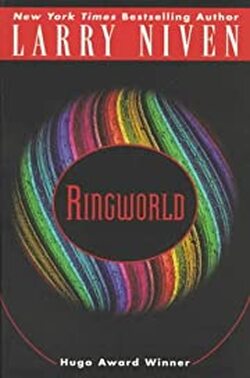 The second book this week, and Book #17 for 2021, was "Ringworld" by Larry Niven. This was one of those books I bought years ago and kept waiting for the perfect time to read. Given the influence this book had on science fiction since its debut in 1970, my desire to ensure I was "ready" is understandable. Unfortunately, there really is no good time to read Ringworld. The book was sexist and in some cases just gross. There were latent and overt rape comments, and females without a purpose beyond sex. I have read a few books by Philip K. Dick and always went away loving the IDEA of the story without loving the story itself, as Dick is not much of an author. In a way, Ringworld left me with a similar feeling, except for the fact that Dick is a better author than Niven. (Granted that is not fair because my sample size of Niven writings is n = 1, but I do not recall any cringing when I read any of Dick's works.) Cycling Update: My individual rides are enjoyable, and I am happy with the distance I am logging overall. However, I have moved into a different mindset now, where a 10 km ride does not seem worth the effort. This issue I find now is the lack of time on most days to fit in a two-hour ride. In the last two weeks, I did finish the segment to Rosetown and almost made it to Saskatoon. I should be well on my way to Regina after this upcoming week, but as you can see from this image, I do not have a route planned past Saskatoon. Not a lot of fun facts on Rosetown on its Wikipedia page beyond the fact that its motto is "The Heart of the Wheat Belt" and there is an airport servicing the area that is apparently not significant enough to warrant an IATA code. New Beers: There were three new beers this week, but the Alley Kat one was a six-pack so do not let the low numbers fool you. Beer #764 was the Holsten Premium lager. I recently had Holsten's Festbock and Maibock, and both were better than this so-called "premium". This was a very thin lager with some active carbonation but no foam. Reminiscent of Budweiser. Draw your own conclusions from that comparison. (2.75 / 5) Next up and coming in as Beer #765 was the Mangolorian from Alley Kat. Combining mango and the super popular Mandolorian was a clever pun that should have not made it all the way to production. Mango is not a great adjunct for beer IMO, but even so, this suffered from not having enough mango flavor. Sorry Alley Kat - love you guys, but just not this beer. Rounding out the trio of disappointing beers for this fortnight, Beer #766 was the Glitter Bomb Hazy Pale Ale from Phillips. I should not be surprised about not liking a Phillips beer, given that I did write last summer about how underwhelming I find them. Glitter Bomb was overly foamy and tasted more like a glass of grapefruit juice than a beer. It was not terrible by any means and was the best of the three this fortnight by far, but it was not great either. New Words:
Two new words this week, both from the Johnson book on good ideas. expurgate [ˈekspərˌɡāt] VERB (expurgated)
obsequies [ˈäbsəkwēz] NOUN
Greetings from 53.5° north latitude after a summer-like week with temperatures in the 20s. Very nice, indeed, but of course, it is only May so days with cooler temperatures are an inevitability. Check out the weather forecast below - high of 8° on Wednesday. That is not much warmer than an average refrigerator. On the slate for this week is a Chinese work ethic slogan that I had not previously heard of, some comments on a book I finished this week, one of the "Biggar" milestones I will hit in my cross-Canada virtual cycling tour, seven new beers, and a single new word. First up, work in China. There is a consistent and pervasive macho and even masochistic work ethos in all technology groups that I have been involved in, and the people I know working in the larger technology hubs like San Francisco and Boston would echo my comments. Counter to that ethos is a growing body of research pointing to the futility of long hours. The most prominent is likely the Stanford study that showed a marked decrease in productivity once a work hit 50 hours in a single week. There are also some firms advocating for shorter work weeks, as noted in this Harvard Business Review article. In addition, the Ryan Holiday book "Stillness is the Key", a book that I finished and commented on last week, argues that long and frenetic hours are completely counter-productive to long term innovation. Taken to the extreme, working long hours can seriously imperil your health and the Japanese even have a word specifically for "overwork death" - karoshi 過労死. Compare and contrast the research to the 996 model in China. 996 is shorthand for working from 9:00 to 9:00 (21:00), six days a week. 996 is not something I heard of before this week, but it it is not surprising. I do not think there is much difference in the success model of Jack Ma's Alibaba from Jeff Bezos's Amazon - work hard and long. 996 has come under criticism a few times. It seems that every two years there is renewed interest in the concept, and the interest does seem to be tied to deaths of workers. As reported in Fortune earlier this year, Earlier articles such as this 2017 Wall Street Journal article or this 2019 BBC Worklife article highlighted the issue. Forbes said in 2019 that China should move to a model of "work smarter, not harder". (No seriously, the article says that. Check it out - first paragraph, last line. That is such a cliché that countless images have been created with that phrase, but there is a point to the trope even if it seems incredible that it would be used in an article on Forbes.) Now one cannot downplay the incredible growth China has experienced and the vast proliferation of giant Chinese technology companies. I am also not downplaying cultural differences and how different individuals will assess their personal situations. I am merely arguing that this is not a sustainable model. But as long as there are enormous successes stories like Huawei or Alibaba are often the justification for such grueling hours. In the BBC article quoted above, Alibaba's Jack Ma is quoted that 996 "is a huge blessing" because that is how his success was possible. It is worth noting that this is not isolated to China. Pick any successful technology firm anywhere in the world and there is a good chance you will find the same mindset. Reading Pile: I was able to finish one book this week. Book 15 for 2021 was the thoroughly enjoyable "The Girl Who Could Move Sh*t With Her MInd" by Jackson Ford. This story about a young lady trying to live a normal life while burdened with psychokinetic powers had a few stunning twists and multiple out-loud-gasp moments. I heard about this book from the weekly newsletter from Orbit Books and I am glad I did. I will definitely check out the other books in the series. Cycling Update: I was able to log 98 km in the saddle this week. I was planning on spending a couple hours this morning to crank out 40 km to close out two segments in the current leg, but instead I spent a couple hours riding 20 km of single-track and multi-use trail with my younger daughter. That is a perfect trade in my books. So this week I was able to close out the segment to Biggar, Saskatchewan. I visited Biggar with my family as a kid of maybe 10 or 12, and still remember the town sign saying "New Your is Big, but this is Biggar". I do not recall anything about Biggar beyond the sign, but Wikipedia has a few interesting facts. First, it is the birthplace of Sandra Schmirler, aka Schmirler the Curler, the skip for the 1998 Olympic Gold Medal curling team. Second, it was the closest urban center to where Coulten Boushie was murdered. Below is the updated progress chart. It is unlikely that I will finish the Lloydminster-Saskatoon segment in the upcoming week, but it is possible. New Beers: There are seven beers to log this week, but before you call for an intervention remember that is over two weeks since I did not enter any last week. I stocked up on singles from the local Wine & Beyond a couple weeks ago, and their selection of singles that I had not tried was pretty much limited to Germans. That will be obvious as you go through the list. Beer #757 was the Holsten Maibock. I still found this to have a bit of silky maltiness even though a maibock is supposed to be less malty and more hoppy. The high ABV did provide a strong taste, but overall this was okay. (3.25 / 5) Beer #758 was the Radenbach Classic. The guy at the checkout and my contacts on Untappd rave about this but I just did not see the appeal. There was only touch of sour, and a color like a brown ale. The long-lasting lazy carbonation was fun to watch, but the spiky booziness did not give it much flavor. (3.0 / 5) Beer #759 was the Paulaner Salvator Doppelbockbier. I really liked this one. It tasted like boozy chocolates, with a nice haziness, and very lazy carbonation. Quite a lot of flavor and color for a German beer. (3.75 / 5) Beer #760 was another Holsten, this one being their Festbock. I was hopeful that this would be better than the Holsten Maibock since it is supposed to be a traditional bock. Unfortunately, I liked it less than the Maibock. There was no carbonation, but it did have a nice color and was a bit caramelly. There was surprisingly little booziness for the ABV, but really not much flavor either. (3.0 / 5) Beer #761 was another from Paulaner. Their Munchner Hell Munich Lager had active carbonation, nearly zero foam, but also nearly zero taste. Well constructed, very easy drinking, but also boring and as a result I was disappointed after having their Salvator earlier. (3.0 /5) The only non-German beer to report on, coming in as Beer #762, was the Fernie Brewing Thunder Meadows IPA. This has lots of piney hops, a nice copper haziness, and a long-lasting foam. A solid beer. (3.25 / 5) Last up for the week and coming in as Beer #763 was the Schneider Weisse Aventinus Weizendoppelbock, or wheat double bock. Just like the Fernie, this was another hazy copper beauty but this was better. Almost sweet, and you can see the silkiness as it pours. High ABV, low booze burn. (3.5 / 5) New Words:
Just a single new word this week. axine [ˈakˌsīn] ADJECTIVE
Greetings once again from 53.5° north latitude. The week was long, but I am not off for a week and very much looking forward to riding, cooking, and likely doing a bunch of cleaning and yard work. The entry this week will be pretty light. There was no time in the week to find anything really profound, and I will leave the beers until next week. That will leave two books, a cycling update, and two words. Let's get on with it, shall we? Reading Pile: I was able to finish two books this week. As I predicted last week, I was able to finish one last week, but it was late Sunday when it got done, well past the time that I finished the blog entry. So technically one of the books this week was actually last week, but in the end it does not really matter, now does it? Book #14 for 2021 was "M is for Malice" by Sue Grafton. This is the third book I have read in the Alphabet Series in 2021, and this one takes me over the half-way point in the series. This one was very enjoyable with a bit more of the soft side of Kinsey showing through. I was 90% through the book and I honestly thought the series was getting predictable. I saw through the obvious killer and picked up the subtle clues to the not-so-obvious killer. I had this one figured out, or so I thought. I do not want to give anything away, but we can just say that I was wrong, and surprised. Book #15 for 2021 was "Stillness in the Key" by Ryan Holiday. This is a philosophy book, but not so much a self-help book. It presented numerous ideas, theories, and practices, all around pushing you to find time to be calm, relax, and think. There were a lot of references to Churchill, some of which I remember from my recent reading of "The Splendid and the Vile", but also Leonardo da Vinci, Marcus Aurelius, Epictetus, Buddha, and Jesus. It presented a lot to think about, but since it was not a self-help book per se, there was not a formula to follow and implement. I suppose that might be the point of the book - you need to spend the time to think about the lessons in the book to actually put them into action. The need to think and internalize is important, and I think that is part of the message Holiday was imparting. Really good stuff, and likely a book I will go back to periodically to refresh and refocus. Cycling Update: My last milestone report for my virtual cross-Canada cycling tour was two weeks ago when I rolled into Lloydminster. For the update this week, I made it past North Battleford, Saskatchewan and about half way to Biggar. (I am super excited to hit Biggar!) Fun facts about North Battleford, according to Wikipedia. The population of the North Battleford area was 17,595 according to the 2011 census, which somewhat shockingly puts it as the fifth most populous area in Saskatchewan. Sadly, Maclean's magazine named it the most dangerous place to live in 2018. Finally, there is an airport close to North Battleford with the callsign of CYQW. Here is the updated progress chart of the tour up to the most recent ride. I should have no problem getting to Biggar this week. New Words:
As mentioned above, just two new words this week. After the seemingly never-ending list of words coming from the Churchill book, it seems odd to have so few in the last three weeks. doxy [ˈdäksē] NOUN archaic
timorous [ˈtim(ə)rəs] ADJECTIVE
Greetings from 53.5° north latitude week that varied from highs of 22 °C to 9 °C. I suppose that should not be surprising given that we just entered May this weekend, but the variation is hard to deal with. There were two interesting articles that I want to share before we get into the usual sections. One deals with the George Floyd murder trial, and the other deals with a Canadian Prime Minister that I honestly knew very little about before this week. The murder of George Floyd at the hands of Minneapolis police officer Derek Chauvin on May 25, 2020 was a reprehensible act. There is no question in my mind that Chauvin is guilty of murder and thankfully the jurors agreed. On April 20, 2020, Derek Chauvin was found guilty on all three counts. 60 Minutes interviewed the prosecution team for their show last week. The full clip is at both times sobering and heart-rending, but also hopeful. Maybe, just maybe, someone like Derek Chauvin in some other police force out there will realize that he cannot act with impunity, that he is supposed to respect and protect all lives and not just the lives of white people, and that there are real and significant consequences for all acts of police brutality. "Was [racism] Mr. Chauvin's motive? Who knows? There weren't any explicit, overt statements made, but most people do have a hard time believing that this would've happened to the typical white citizen in the state of Minnesota." - Prosecutor Jerry Blackwell The video and images from the murder are still hard to view, and hopefully they are always hard to view. George Floyd should not have died, should not have been murdered. If any good can come out of his death, I hope it is that this is the end, at least the beginning of the end, of systemic, institutionalized racism, whether that is against black people in America or Indigenous people in Canada. Okay. Trying to ... move on? ... No, that is not what I mean. It is more like needing to continue to live without forgetting. Switching gears, I now want to talk about a white, old, Canadian male who died nearly fifty years ago. Louis St. Laurent was Canada's twelfth Prime Minster, serving nearly nine years from 1948 to 1957. He was described as a strong Canadian nationalist and was by all accounts a very effective leader. Not that I knew any of this about him, mind you. There is a Catholic high school named after him and I did not even realize who it referred to until this week. So yeah, some dude that I knew nothing about. 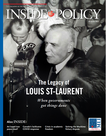 St. Laurent came to my attention this week when I read the March 2021 issue of "Inside Policy" from the Macdonald-Laurier Institute. The cover of the issue has a picture of St. Laurent with the words "The Legacy of Louis St. Laurent: When governments got things done". My immediate reaction was of scoffing indifference - here is another case of looking back at the past with a bias that everything was better before - but I read the article anyway thinking that this was going to be a series of potshots at Justin Trudeau, a leader that the Institute has made no secret of their dislike. In contrast, the Institute extolled the virtues of St. Laurent. To wit: On almost every issue it touched, [St. Laurent's] government modernized the idea of Canada, either in its support of new programs or in its international relations. The list of accomplishments provided in the articles include: approving Canada's participation in NATO; recognizing the state of Israel; overseeing coordination with American air defence, which later resulted in NORAD; expansion of the shipways along the St. Lawrence; the Trans-Canada Highway; multiple radar lines including the Distant Early Warning system; the Canso Causeway; a pipeline from Alberta to central Canada; a push for the aerospace industry which resulted in the Avro Arrow; and, universal hospital insurance. That is quite a list, by any measure. The Rt. Hon. Louis St. Laurent deserves more recognition that he currently has based on that list of accomplishments. I am sure he had flaws, but I could not find any online and none were referenced in his Wikipedia entry. There was an article by Conrad Black that said he had "never heard a negative, or even slightly disrespectful, comment, including from his opponents" about St. Laurent. Quite an individual, apparently. Reading Pile: I was able to finish two books this week and will likely finish a third this week but after I post the entry for this week. Book #12 for 2021 was "But What If We're Wrong?" by Chuck Klosterman. This is a book of separate but connected essays around the theme that in the future people will look back at us and see our present / their past completely differently than we do. This makes sense when you think about how we in our present reflect on our past which is of course someone else's present. This book does a good job to blow up the idea that we know what is true, and what future people will think about our truths. There are a number of good points in the book, but the one about American football and team sports blew my mind. "The first possibility is that football survives because of its explicit violence, and this this discomfiting detail ends up being its twisted salvation. The second possibility is that football will indeed disappear - but not just because of its brutality. It will disappear because all team sports are going to disappear, and football will merely be the first." --Chuck Klosterman, "But What If We're Wrong?" 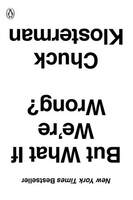 I do not watch sports any more. I have watched two hockey games since the end of the 2012 NHL season (one of which I was in a bar celebrating a friend's birthday, and the other I was on a guys weekend in the mountains with a couple friends). I have watched a bit more baseball in that time period but not really much after the Cubs won the World Series in 2016. I stopped watching football (soccer) after Tottenham lost the Champions League to Liverpool in 2019. I bring that up because I just assumed my lack of interest in sports was just something about me, but Klosterman made me think that maybe society at large will move away from watching team sports. Not everyone of course, especially in the case of American football as Klosterman sees it, but for the majority of people. It is nearly impossible to imagine our world without team sports, but that is the essence of Klosterman's book - what about the modern and present day will seem ridiculous in the future? Give his book a read to see if there are any similar revelations for you.  Book #13 was "The Magnificent Monsters of Cedar Street" by Lauren Oliver. This was a book that I read with my younger daughter. There was a lot to like about this book in the early stages - an interesting premise, strong characters, funny monsters, and a compelling mystery. But like a lot of books it unfortunately hobbled to the conclusion. We were thirty-two pages from the end assuming it was the first in a series because there was no way it would be wrapped up that quickly. It was, but unfortunately not in a satisfying way. There were definitely some high points along the way, but not enough to be something I would consider "good". Not every book can be something to savor for all time, but I would rather read a marginal book than not read. New Coffee: It has been quite a while since I last reviewed a coffee. This is because I purchased multiple bags of the previously reviewed beans and was going through them before trying something new. My most recent new coffee was the Ethical Bean Sweet Espresso. I was looking forward to this one as the company has a good story to tell and I quite like their decaf. Their espresso though was quite thin and did not have a lot of taste. I upped the amount of beans but that did not help much. I get more crema and taste from their decaf. You might not be able to tell from the picture, but the beans are very dry and brittle, which probably leads to the lack of crema. New Beers: I had two more beers from Cabin Brewing, the end of a four-pack sampler. Beer #755 was their Falling Skies Dark Sour with Apricots. The first taste of this was extremely sour, but I got used to it very quickly. I did not pick up much of the apricot flavor, which is too bad. In summary, a sour for the sake of being sour with an ingredient that did not add much to the beer. (3.0 / 5) Beer #756 was their Morning Sun Farmhouse Ale / Saison. This was decent stuff. Refreshing and just carbonated enough to give a bit of a pop. Lots of mild fruit flavor and a nice aroma. (3.25 / 5) (Note that I have recalibrated my beer numbers in this blog to align with what is on Untappd. If you recall, I mentioned last week that the numbers were out of sync between this blog and Untappd. I assume I just messed up somewhere on this blog since beer #700.) New Words:
Just two new words this week. The first one was from a "Choose Your Own Adventure" style rendition of Romeo and Juliet and was in the colophon. (Yes, I am the kind of person that reads the colophon.) callipygian [ˌkaləˈpijēən] ADJECTIVE
gimcrack [ˈjimˌkrak] ADJECTIVE
 Greetings from the confirmed location of 53.5° north latitude. Contrary to the standard definition, this past week was at least 15 days long. It was not a bad week by any means, just long. As I mentioned last week, I was trying to sell a car on Kijiji and that was an experience that I would not wish on many people. It ended up being a successful transaction and I am happy we did not just accept the trade-in amount from the dealer, but it was a lot of work. From a sociological perspective, we - or at least I - have self-selected a pretty narrow slice of the population to interact with. Middle-class, cycling enthusiasts, technology focused, liberal-minded. Every once in a while, our daughters will make a friend with someone that comes from a family that is on the periphery of that slice. Maybe they will be more liberal, more educated, more religious, or younger, but usually there is enough common ground to build a relationship on. Selling something on Kijiji puts you on the outside of that slice and exposes you to the entire spectrum of people and humanity. There is no way to be insular as the act of posting that ad blows up the bubble of comfort one has with the self-selected circle of friends. Of the nearly 100 people that I interacted with during the process, I was exposed to many different types of people. Some were quite friendly. Some were less concerned about keeping appointments and obligations than I am. (Trying to be polite.) There were lots of people with writing styles and grammar that suggest recent arrivals to Edmonton. There were lots of people with writing styles and grammar I would consider lazy . There were also a lot of people that knew how to fix up cars, which is clearly not a demographic represented in my current bubble. As I said about, the transaction was successful and I was not concerned about the deal turning ugly, but walking away from the deal with a pocket full of brown bills was a bit nerve-wracking. Moving on, I was catching up on emails the other day and I came across a newsletter from Studio D that was really interesting (sign up here if interested). I know about Studio D from a Kickstarter that I backed a few years ago. Their Field Study Handbook is an amazing book filled with best practices and templates to successfully do field work pretty much anywhere in the world. I pull it out and flip through it often just to read about topics like In-depth Interview Stages, how to build a Pop-Up studio, and how to pitch a research project. In the newsletter, Studio D asks the question "What skills does one need today?". At the top of the list is literacy and numeracy, which seem like obvious choices. We live in a time when literacy is the dominant skill—learning how to write, read, and comprehend what is written, closely followed by numeracy. Given that there was a time before literacy (roughly 7,000 years ago), will we live to experience a post-literate world? For example where communication with letters and words is essentially delegated to or abstracted by technology? - Studio D, Radar Newsletter #24 They suggest that there are five other -acies that one should focus on.
Four of those five -acies are made up words, but the concept behind them and the need for them seems obvious. I am particularly intrigued by the concept of Artificialacy. Knowing when some corporate algorithm tampered with your entertainment stream is not something I considered before but is something I will look out for in the future. As a parent, one focus I am trying to impart on my daughters is self-sufficiency. They should know the basics like how to wash laundry, how to budget and invest, how to plan and manage conflicting tasks, how to cook at least ten different meals. I am also trying to teach them the importance of having a good toolkit. In the past, this meant knowing how to use a hammer, saw, screwdriver, and maybe even a multimeter. Today though, I am expanding the definition of toolkit to include macros and commands in Excel, and coding with Python. Most of those fit into literacy and numeracy. Thinking about how to incorporate the additional -acies presented by Studio D will be an interesting parenting challenge. 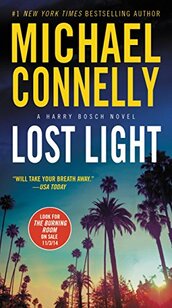 Reading Pile: I was able to finish another book this past week, and got half way through another. Book #11 for 2021 was "Lost Light", the ninth book in the Harry Bosch series from Michael Connelly. I really enjoy the Harry Bosch books, but for some reason I have not read one since 2016. In this installment, Bosch is now retired but has not given up being a detective and decides to investigate a cold case from four years prior. I really cannot say much more as I risk giving away the plot. Suffice it to say that for this book, Bosch comes to grip with life as an ex-cop, and because he is Harry Bosch, he pisses a lot of people off. Well worth the read if you are going through the series and potentially good enough to read without reading the first the first eight books in the series. Cycling Update: This week was for good for cycling and my cross-Canada virtual tour, with just over 100 km in the saddle. In addition, I closed off the final two segments of the current leg between Edmonton and Lloydminster. With that leg complete, I now move into my third province on the virtual tour. This next leg between Lloydminster and Saskatoon is a decent length of 411 km. At my current pace, I will be able to complete is by early June. Fun facts about Vermillion and Lloydminster. Vermillion was founded in 1902 and had a population of just under 4,100 in the 2016 census. Lloydminster is a border city, with a split between Alberta and Saskatchewan. Lloydminster has a population of 31,410 according to the 2016 census, with 63% of the population living in the Alberta portion of the city. This makes sense when I first saw the numbers given the lack of a sales tax in Alberta which would seem to be an economic driver to focus living in Alberta. However, the Wikipedia article points out that the Saskatchewan side of Lloydminster is exempted from the Saskatchewan sales tax so as to not penalize Saskatchewan businesses. Next up is North Battleford and then on to Saskatoon via Biggar and Rosetown. New Beers:
There are a lot of beers to report this week, but that is because I did not report on any last week. Even so, seven beers in fourteen days is faster than my current overall pace since March 2015 of one new beer every 2.95 days. The first beer of the fortnight and coming in as Beer #749 was the Troubled Monk If the Crown Fits Kettle Sour. A ton of pineapple and a very fresh taste. I find kettle sours are often not that sour but this one seemed too un-sour to carry that label. That said, this was very tasty and I could see this beer being a huge hit on a crowded patio some day. Hopefully. (3.75 / 5) Beer #750 was the Pond Surfer ale from Town Square. I was expecting a more bitter taste based on the color but this was very easy-drinking. A bit of pithiness but not too much and a nice level of malt. Good stuff. (3.5 / 5) Next up and coming in as Beer #751 was the Albertosourus from Edmonton brewery Campio. Based on recommendations from friends, I went in with high expectations but was disappointed. This one smelled more sour than it was unfortunately. It did have a beautiful color, but I found the fruit flavors were too mixed and muddled. (3.0 / 5) Beer #752 was the Arcade Glow Pale Ale from Boombox Brewing out of Vancouver. This was a decent ale with a fair bit of hops and some nice crackery malt. I will have to look out for more from Boombox in the future. (3.5 / 5) The next beer was a complete departure from the standard offering. Beer #753 was the Phillips Zonkey is supposed to be a Brown Ale, which is not something I typically like. For this one though, the first taste was "wow". Very fresh. Added a nice sweetness to the standard muddled brown ale. The ginger has a bit of zing to it for sure. (3.75) Last up were two beers from Cabin Brewing out of Calgary. I have raved about Cabin of late and was really hoping for another two knockouts. Beer #754 was their Starburst ESB (labeled as a Triple on Untappd). This was very good with the freshness completely masking the high ABV (9.5%). Lots of fruits and a great aroma. Definitely one to pick up and hoard in the back of the fridge away from unappreciative guests. (4.0 / 5) And finally, Beer #755 was their Night Kitchen ('Smores) Imperial Stout. I did pick up some creaminess from the lactose, but not as much as other Imperials. (My reference beer for this style is still the Iconic Milk Stout from Situation.) Overall, this was good but a bit weird. (3.0 / 5) Note that my numbering on this blog and on Untappd no longer match, and I am not sure why. Untappd has me at 754 beers but the numbers seem to reconcile back to Beer #700. I will dig in and see if I can figure out the issue. Greetings from ... somewhere? For quite some time, I have opened this weekly blog with something in the vein of "Greetings from 53.5° north latitude". However, this week I became concerned that maybe I am not actually at 53.5°. Take a look at these different results. These first two come from a Bing search of "latitude of Edmonton". The image below comes from the same search term on Google. Which is the correct answer? One might be able to account for the difference between Bing and Google because, I don't know, Microsoft versus Google? That seems like a bad reason of course, but doing the math it becomes obvious the difference between 53.5461° on Google and 53.54624° on Bing is small enough to be ignored. (Assuming an average of 111 km as the distance between lines of latitude, this comes out to about 15 m of difference.) Both are clearly well within the city limits of Edmonton and the difference between the two is likely which side of the street you define the center of the city to be. To further confound the problem though, the reason I noticed this was because I launched Google Earth for the first time in quite a while and I noticed that 53.5° is nowhere near "Edmonton" when viewed via the lens of Google Earth. The image below is snapped from Google Earth with the latitude line layer overlaid for easy reference. Next I checked the Wikipedia page for Edmonton and from there linked to me to this page which linked various different references for the geographic location of Edmonton and has this handy image and table of information. Looking at this page, I realized my problem - I had mixed my units when comparing the various sources. The Google Earth image is shown in Degrees / Minutes / Seconds, or DMS. You can see from the image above that Edmonton is centered at 53° 32' as that latitude runs right through the downtown core. In Decimal notation, 53° 32' translates to 52.53°. So. Problem solved and lesson learned. Without further ado, greetings, and welcome from a confirmed 53.5° north latitude. This week's entry will be a bit shorter than it could be, mainly because I am writing this late on Sunday after having spent most of the weekend trying to sell a car via Kijiji. I will focus on the one book I finished, my cycling update, and the new words. The four new beers this week and writeups about skills, COVID, and cryptocurrencies will be carried over to next week. 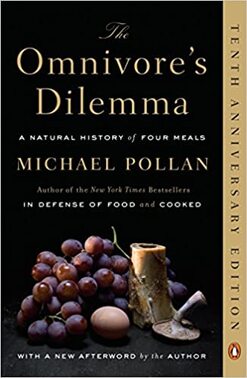 Reading Pile: I was able to finish one book this week, this one being the second book I have read by food writer and journalist, Michael Pollan. Book #10 for 2021 was "The Omnivore's Dilemmna: A Natural History of Four Meals". This was a book that terrified me with its descriptions of industrial food production. It was not descriptions of what happens in industrial scale slaughterhouses that terrified me, as terrible as that is, and neither was it the descriptions of the dietary impacts of cheap corn, as harmful as they are. No, it was the fear of the monoculture that modern agriculture supports that really scared me. If you have ever flown across the prairies in recent years, most of the farmland one can see at any point in a journey is of a single plant. In most cases around Edmonton, it is canola. In others it is soy and corn, with industrial corn production being the focus of much of Pollan's book. Concerns about monoculture were not new to me, but Pollan really highlighted the importance of the issue. The vicious cycle of a single crop that requires lots of fertilizer, with no ability for the soil to regenerate and no animals or insects to aerate, fertilize, and nurture it and help it thrive. In addition, modern agriculture is a volume game, so bigger seems better, meaning annoyance like hills and trees need to be removed, and there resulting barren landscape exposes the soil which becomes more vulnerable to wind erosion. Modern industrial agriculture, as pointed out by Pollan, will say this is fine because we can make the soil more viable by pumping more fertilizer into it. However, to use a word Pollan used several times, that is a reductive way of looking at the problem because fertilizer production requires lots of fossil fuels and therefore produces lots of greenhouse gases.  Interstellar (2014) Interstellar (2014) While reading Pollan's critique of industrial corn, I kept thinking about what we are doing to the planet and the image that kept coming was the farm scenes at the start of "Interstellar", and how Matthew McConaughey had to wear a mask to go outside due to the awful dust storms. Are we creating that inevitability of a dying planet that can only be saved by the sudden appearance of a wormhole, all because of a capitalist need for profits and a consumeristic need to constantly pay less for everything? We want more and we want it cheaper, and that is all that matters? (See this link for other entries about capitalism.) Pollan highlights one solution that might be an answer if not the answer, but it is radical in the extreme at least by what we think of today as conventional wisdom driven by capitalism. I will leave it to you as a reader to read about and analyze that potential solution yourself, as even if I had the time and space to summarize it here, I doubt I could do it as eloquently as Pollan did in his book. Suffice it to say that I think we should give the alternatives to industrial agriculture a significant amount of focus and brain power. Even if the current solutions are not globally scalable, they should be able to provide inspiration for ideas that may be. Pollan also wades into the ethics of eating meat. In my mind, eat meat or not, that is your choice. But I think his words in the following quote (page 405 from the paperback version of the book) are an interesting take on the subject. If there is any shame in that destruction (my note: of killing an animal), only we humans seem to feel it, and then only on occasion. But cooking doesn't only distance us from our destructiveness, turning the pile of blood and guts into a savory salami, it also symbolically redeems it, making good our karmic debts: Look what good, what beauty, cam come of this! Putting a great dish on the table is our way of celebrating the wonders of form we humans can create from this matter - this quantity of sacrificed life - just before the body takes its first destructive bite. Cycling Update: This was a really good week for cycling, and I did not even get a ride in on the weekend end. I hit 80 km by Friday in three rides and explored parts of the city that I may never have been to, and certainly have not been to since I moved here officially after university. I made it to Vegreville on my virtual cross-Canada cycling tour this week. Vegreville is a nice town, one that I spent a lot of time in when I was an independent consultant as I had multiple clients there. In the years since I stopped consulting, I have only been back two or three times, and with younger kids at the time, each visit to Vegreville required a stop by the pysanka. As per the Wikipedia entry, a pysanka is a decorated Ukrainian Easter egg decorated with Ukranian folk designs. Pysanka can be beautiful objects, and we have several in our house. An image search of Vegreville comes up with mainly images of the massive pysanka erected in Vegreville. Next up on the cross-Canada tour is Vermilion. I probably would have made it there this week if not for the Kijiji focus all weekend. I doubt I will make it all the way to Lloydminster this week, but that might happen if I can get four good rides in. The updated progress chart is shown below. New Words:
Just one new word this week, that being the first one. The rest are the last tranche of words from "The Splendid and The Vile" that I finished a handful of weeks ago. anhedonia [ˌanhēˈdōnēə, -hi-] NOUN psychiatry
astrakhan [ˈastrəkən, ˈastrəˌkan] NOUN
solipsism [ˈsäləpˌsizəm] NOUN
peroration [ˌperəˈrāSHən] NOUN
chaff [CHaf] VERB chaffing (present participle)
chary [ˈCHerē] ADJECTIVE
impetigo [im·pe·ti·go | \ ˌim-pə-ˈtē-(ˌ)gō , -ˈtī- \] NOUN
Greetings and well met. 53.5° north latitude welcomes you both from this blog and as the latest destination in my cross-Canada virtual cycling tour. The week was also witness to the completion of one book and the consumption of three new beers. No new words were logged, but I still have a number to catch up on from my reading of the story of Winston Churchill during the early days of World War II. Diving in commences in three, two, one, ... 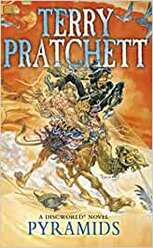 Reading Pile: I was able to finish one book this week, but it came at the cost of a bit of running around. Book #9 for 2021 was "Pharaohs" by Terry Pratchett, the seventh book in the wonderfully imaginative Discworld series. I had the ebook from my local library and the loan expired with about thirty pages left. I was left to drive to another branch to grab a physical copy so that I could finish it. Pharaohs is another funny Discworld story, and is nearly completely standalone from the first six books in the series. There is a physical location that is repeated from other novels, but none of the characters have appeared in any of the previous books. This is good in how it fleshes out the world more, but somewhat disappointing because I would love to know what happens to Rincewind or Luggage or the Wyrd Sisters. Beyond that, this was another good story with numerous laugh-aloud moments. Seven books done in the series, thirty-three to go. I am looking forward to reading each of them and already sad that I know the series is finite. Cycling Update: This morning, I virtually rode into and slightly past Edmonton. In 186 days since I started logging my rides towards the goal of virtually crossing Canada, I have traveled 1681 km over 108 rides for an average of 15.57 km per ride. That is up from the 15.36 km average I posted just last week, so clearly my rides are getting longer. The following image shows the map of the next leg - Edmonton to Lloydminster. This is by far the shortest leg to date, but I feel Lloydminster is an appropriate goal since it is on the border with Saskatchewan. The first segment to Elk Island National Park is only 53 km, and with the carryover from my most recent ride, I am already 3.6 km done. The next image shows the progress to date on the first four legs in the virtual tour. Note that the Edmonton - Lloydminster leg shows up as 261 km on Bing Maps as noted above, but the Edmonton - Elk Island - Vegreville - Vermillion - Lloydminster leg with the stops logged along the way comes in at 264 km. I will be going with the larger number for the tour. Now that I am back on segments that are less familiar (to me) than the leg between Jasper and Edmonton, I will continue the "fun facts" updates for each destination along the way. New Beers: I had three new beers this week, all from great Alberta breweries. Beer #743 was the Cloudburst from Calgary's Cabin Brewing, which was described on the label as "tart blueberry and lemon ale with vanilla and lactose". This was a fantastic beer. The lactose provided a wonderful creaminess which was nicely offset by the tartness. Plus that startling dark red color was wonderful. If Cabin keeps this up, they are going to supplant Collective Arts as my favorite non-Alley Kat brewery. (4.0 / 5) Beer #744 was the Tumbling Tide Tripel from Dandy Brewing, once again in Calgary. This silky and smooth beer did a wonderful job of hiding the high tripel level ABV of 8.5%. It also had a nice lacy foam and aroma. (3.5 / 5) Last up and coming in as Beer #745 was the Full Circle Roggenbier from Blindman Brewing in Lacombe. I had no idea what a roggenbier was, so lucky I found this web page that asked "What the Hell is a Roggenbier?". I learned that roggen is German for rye and a roggenbier is a beer brewed with a high percentage of rye malt and a low amount of hops. I really liked the use of rye and the clove added a nice spice that I typically equate with winter stouts but worked really well with this lower ABV beer. From reading the label though, I had no idea who brewed it. (3.5 / 5) New Words:
All of the words this week are still from "The Splendid and The Vile" from a few weeks ago. Well, technically there were a bunch of new words in "Pharaohs", but they will all words Terry Pratchett made up. rive [rīv] VERB riven (past participle)
brio [ˈbrēō] NOUN
diathermy [ˈdīəˌTHərmē] NOUN
contrapuntal [ˌkäntrəˈpən(t)l] ADJECTIVE
calumniate [kəˈləmnēˌāt] VERB calumniated (past tense) · calumniated (past participle)
ineluctable [ˌinəˈləktəb(ə)l] ADJECTIVE
chancel [ˈCHansəl] NOUN
Greetings from 53.5° north latitude, a part of the world straddling alternate dimensions of eternal spring and eternal winter. Hey, it's nice! Hey, it's snowing! Where did that wind come from? Beyond suffering through the vagaries of weather, the week was pretty quiet. I have decided to run a game of Tomb of Annihilation for the group of friends I am currently playing Curse of Strahd with. I am contemplating creating a blog with a series of prep session notes for Tomb. If I do, I will post a link here. On top of the prep work for Tomb, I finished one book, hit the century mark for rides in my cross-Canada virtual trip, and tried two new beers from my favorite brewery. Let's dive in. 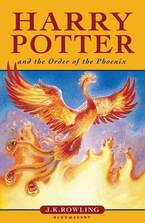 Reading Pile: Book #8 for 2021 is a re-read of the fifth Harry Potter book, "Harry Potter and the Order of the Phoenix". This was something my younger daughter and I started reading on January 1 and I am pretty impressed that we ploughed through 764 pages in eighty-five days. If you have read the series, you will know this is the longest of the seven books and it is definitely the darkest book so far in the series. The lamentable Harry Potter does not have much true hope for the first 7644 pages but I felt pretty good for him at then end. It is hard to do much of a review of the fifth book in any series without going into significant detail that would spoil the other books in the series. Suffice it to say that this was an emotional rollercoaster. It is also the last Harry Potter book that I have read (or listened to) multiple times. Later this year we will dig into the next book in the series, and I will do so with relatively fresh eyes having not read it for about fifteen years. 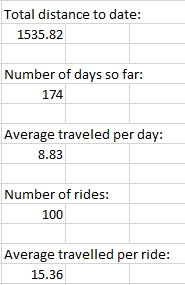 Cycling Update: I made really good distance this week on my bike, including a ride with my summer bike on Saturday that ended up being a fairly snowy affair after about half way through the ride. No segments or legs were completed this week, but I should be able to finish off the Edson - Edmonton portion next week. I was comparing cycling notes with my friend Bryan earlier this week and I realized that I was at 100 rides since I started tracking my cross-Canada virtual trip. As you can see in the image, as of earlier this week I had tracked 100 rides for 1535 km. My average ride is over 15 km and I am averaging 8.83 km per day overall. At about 11,000 km if I cover a virtual route to every provincial or territorial capital, I am about 15% done. At the current pace, my entire trip should take me almost exactly two full years. New Beers: There were two new beers this week, both from Alley Kat. First up, coming is as check-in #741 was a tribute to Alley Kat founder, Neil Herbst. Neil's Smoked Porter had nice malts and a rich color. There was a bit of smoke without the smoke being overpowering. Slightly more foam would have improved it, IMO. All in all nicely done and a great tribute to the Alley Kat founder and legend. (3.5 / 5) Second up was the Sabro Dragon, another solid beer in their Dragon Double IPA series. The hop combination had a slightly metallic note, but the aroma and foam were good. The copper color was beautiful. This probably had more obvious hops taste than any recent Dragon. (3.25 / 5) I thought it was appropriate that I also earned the Untappd "One Billionth Check-in" badge drinking a beer from my favorite brewery. New Words:
The new words below are all from my reading of "The Splendid and the Vile", the book that I finished and wrote about last week. punt [po͝ont] NOUN
bodkin [ˈbädkən] NOUN
towpath [ˈtōˌpaTH] NOUN
minatory [ˈminəˌtôrē, ˈmīnəˌtôrē] ADJECTIVE formal
scarify [ˈskerəˌfī] VERB
lodgment [ˈläjmənt] NOUN
cuspidor [ˈkəspəˌdôr] NOUN US
Greetings from 53.5° north. The past week was filled with reading, beer, and cycling, plus a recognition of the need to set weekly goals for words written if I am ever going to complete that proposal for the book I want to write. Tracking progress towards goals and milestones is instrumental for making progress in everything else I do, so I wonder why it took me to this week to realize that for this particular item. I am going to stay silent on the actual content of the book until the proposal is submitted, regardless of whether it is accepted or not, but I will comment on progress on this site. With that, let's get on with the update - one book read, one segment completed, and two-but-actually-only-one new beers.  Reading Pile: Depending on how you count which week we are in 2021, today marks the end of the eleventh or twelfth week of the year. If I am going to read 52 books in 2021, I should have finished eleven or twelve books by now, but I am unfortunately not close to that goal. I have one book in progress that should be done in the next week, plus another that is quite short that should also be done in the next few days. That will still put me below pace though, so I need to get focused. Book #7 for 2021 was "The Splendid and The Vile" by Erik Larson. I picked this up from the library as I was intrigued by the name, without any idea that it was a historical account of World War II and the coterie around Winston Churchill. There was a lot about Churchill of course, but Larson goes into depth about one of Churchill's personal secretaries, his daughter, his daughter-in-law, his wife, a few close confidants, and to a certain extent, the King. Showing the quirks of the protagonist's personalities highlighted that as great as these people were, they were just people with hopes, dreams, fears, and ambitions much like anyone else. Churchill was clearly flawed - as we all are - but he was able to work with and around his flaws to lead his nation in a war that was constantly hammering his country. The Nazis thought Churchill's flaws would be Britain's undoing, but I think his flaws shone a light on his humanity, and it was this humanity that allowed his country to rally behind him. The book was filled with great anecdotes and quotes. I will not share them here for fear of spoiling the surprise. It is a rather long book, but it was a quick read, and highly recommended at that. Cycling Update: I am working on increasing my average distance traveled to 10 km per day. My average ride per trip is over 15 km, which I am happy with considering we are just coming out of the winter months. The daily average overall regardless of whether I rode or not is too low though, coming in at 8.9 km. My goal is to consistently get that above 10 km per day, or 3650 km in a year. The math behind my averages is as follows: It has been 172 days since I started logging my trips for my virtual cross-Canada tour, and I have traveled 1525 km. By the end of March I will be at the half-way point for a year and should be over 1600 km. However, a half year based on a 10 km per day average would mean 1825 km traveled. Much like my comments about reading and writing, tracking progress is important to keep me on track. In the last week, I was able to complete the Hinton-Edson segment, and am now about 25% of the way through the Edson-Edmonton segment. At my 10 km day average, I will complete the Valemount to Edmonton leg in two weeks. For now, here is a visual look at my progress. 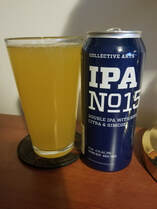 New Beers: I was able to try one new beer this week, continuing a streak of disappointment with a favorite brewery. I also happily dug into a new beer from what I thought was a new-to-me brewery and was surprised to find that I had already had that beer. Beer #740 was yet another from Collective Arts, their IPA No. 15. I was a bit down on Collective Arts after the last few beers so I went into this one somewhat tepid. It was close to being great, so close. It had lots of grapefruit without the drying pith that so many IPAs fail on. Very smooth, but unfortunately it was flat and without much life. If this was not a can, I would have suspected an old keg. Overall a lot of promise but just not quite a winner. (3.25 / 5) The brewery that I thought was new-to-me was Trolley 5, a brewpub out of Calgary. They have a surprisingly large lineup and I tried their First Crush White IPA on the recommendation from a friend. I quite enjoyed it and was thinking about rating it 3.5 or 3.75 when I logged into Untappd. I first had First Crush in September 2018 and rated it 3.75 at that time. The consistent rating is a good sign that I do not vary in my assessments. Unfortunately though I was unable to claim another check-in, but my personal goal to drink one of every beer in the world is a stretch goal, after all. New Words:
So many new words, courtesy of Larson's book on Churchill. A number of the new words were taken directly from quotes from Churchill's minutes and memos that Larson peppered throughout the book. There are too many to address in one week, so I will do about one-quarter of them this week. ovipositor [ˌōvəˈpäzədər] NOUN zoology
indefatigable [ˌindəˈfadəɡəb(ə)l] ADJECTIVE
dogsbody [ˈdôɡzˌbädē] NOUN BRITISH informal
supercilious [ˌso͞opərˈsilēəs] ADJECTIVE
epistolary [əˈpistəˌlerē] ADJECTIVE
hidebound [ˈhīdˌbound] ADJECTIVE
machicolation [məˌCHikəˈlāSHən] NOUN machicolations (plural noun)
|
Archives
April 2022
Categories
All
|

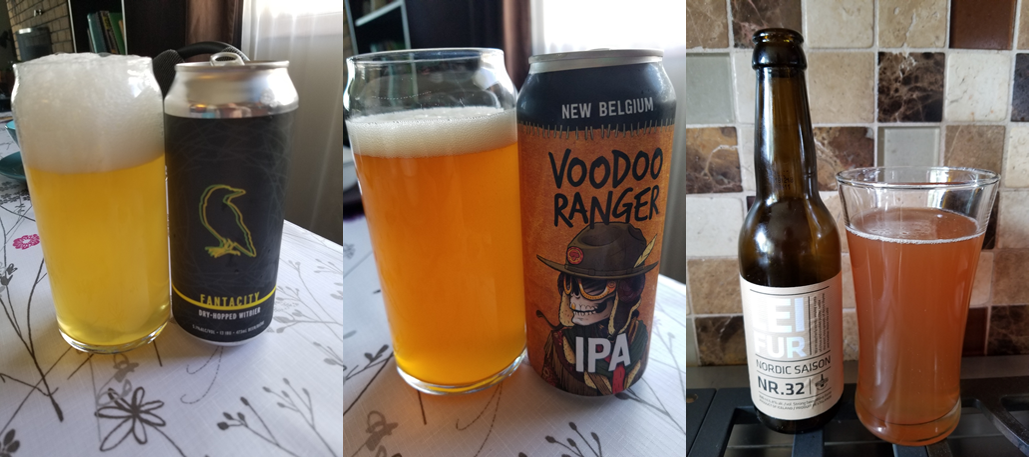

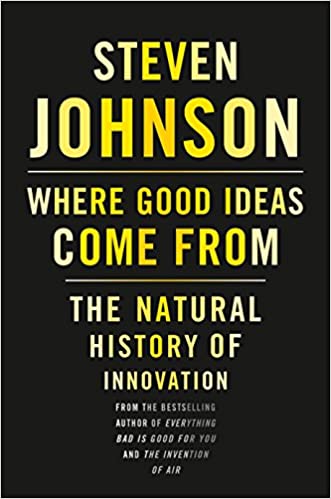

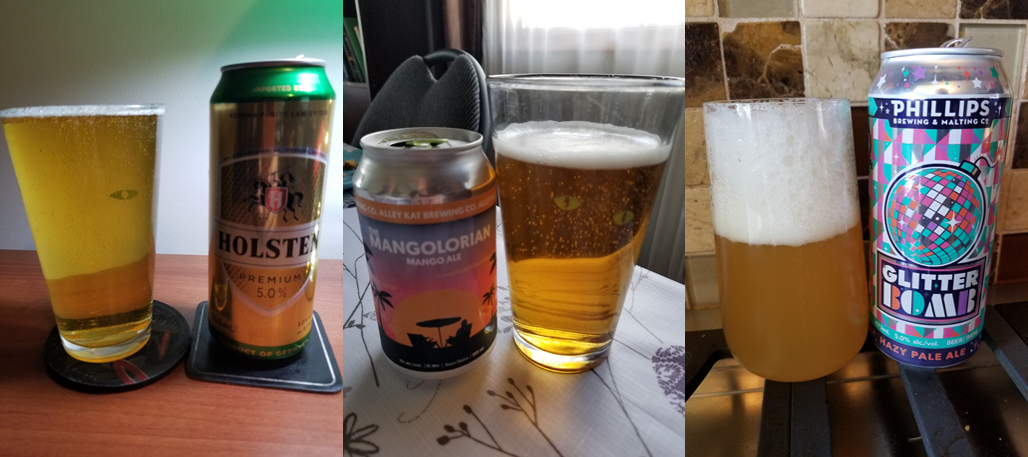
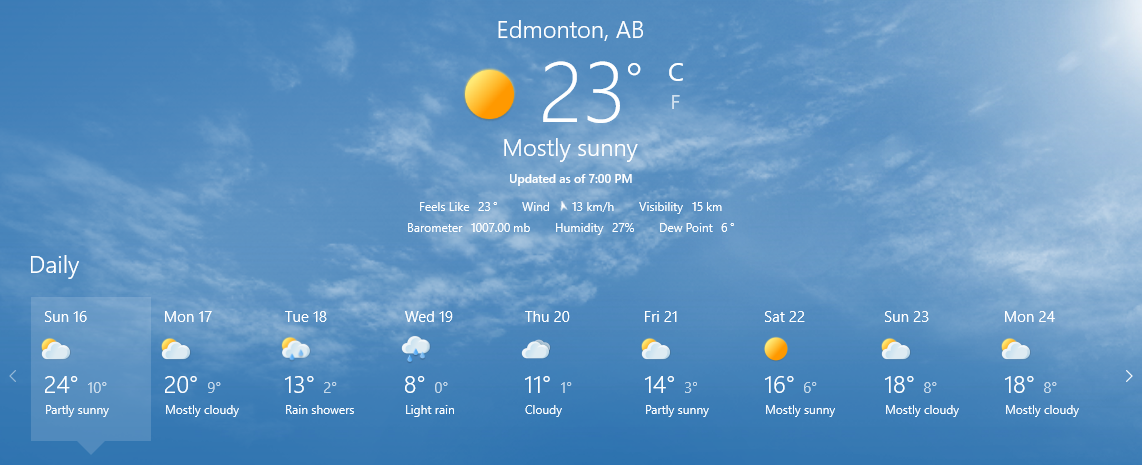
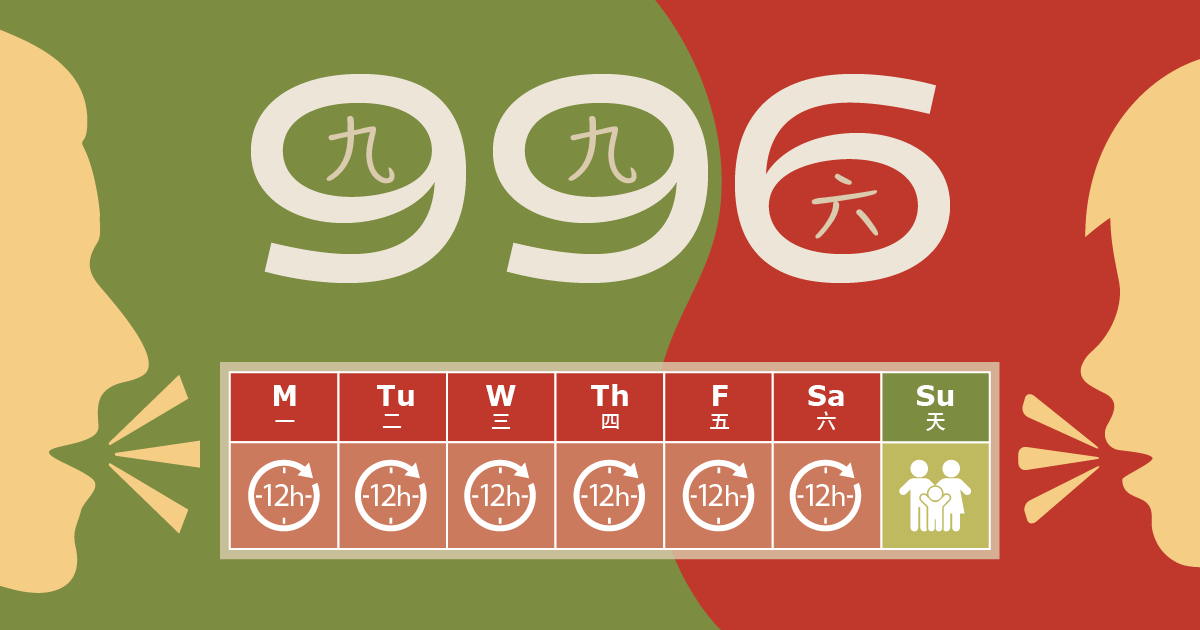
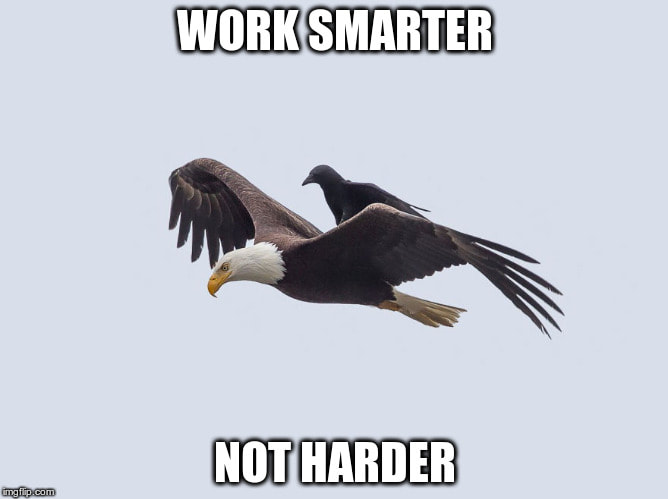




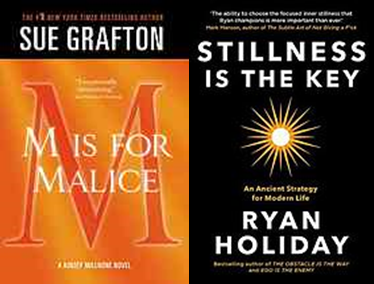



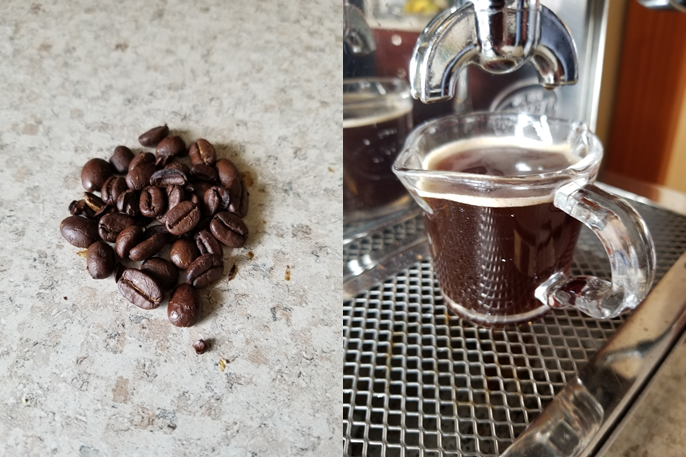
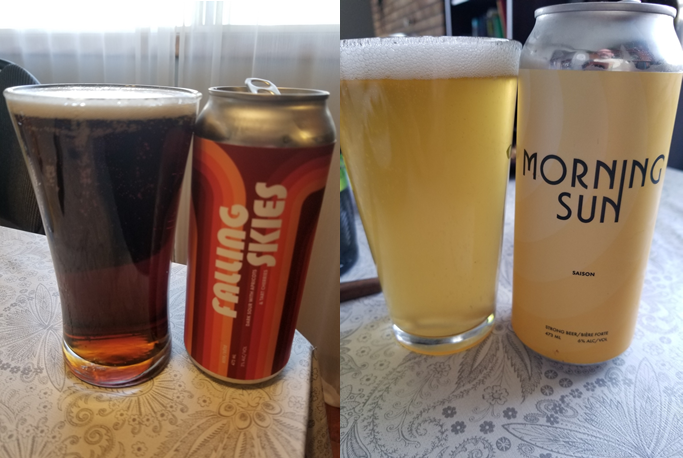
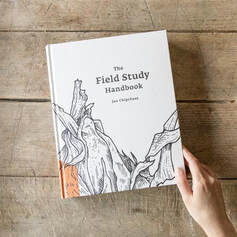
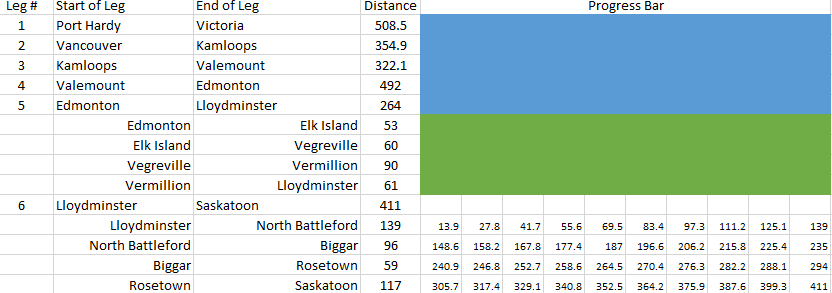








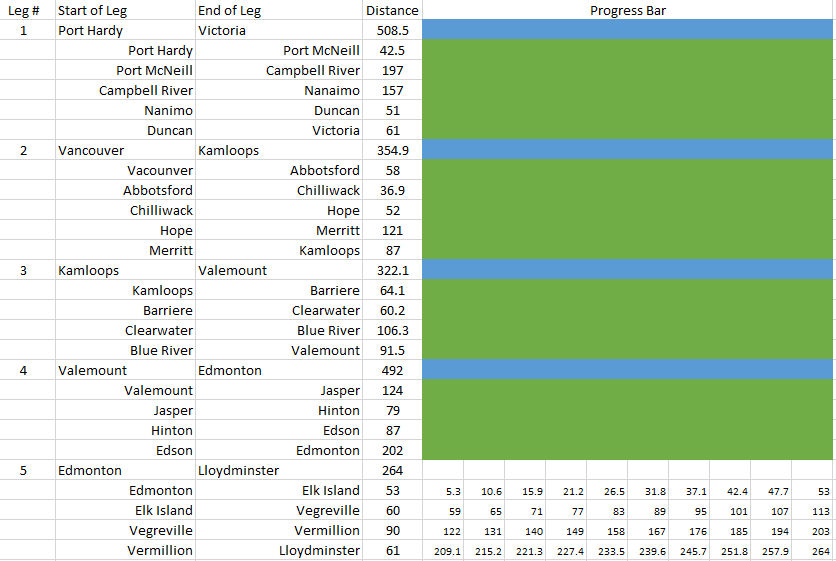
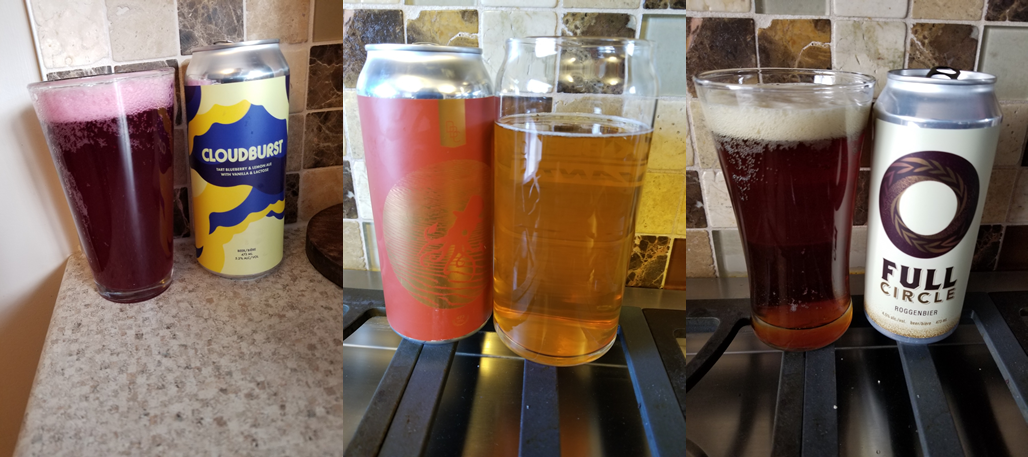
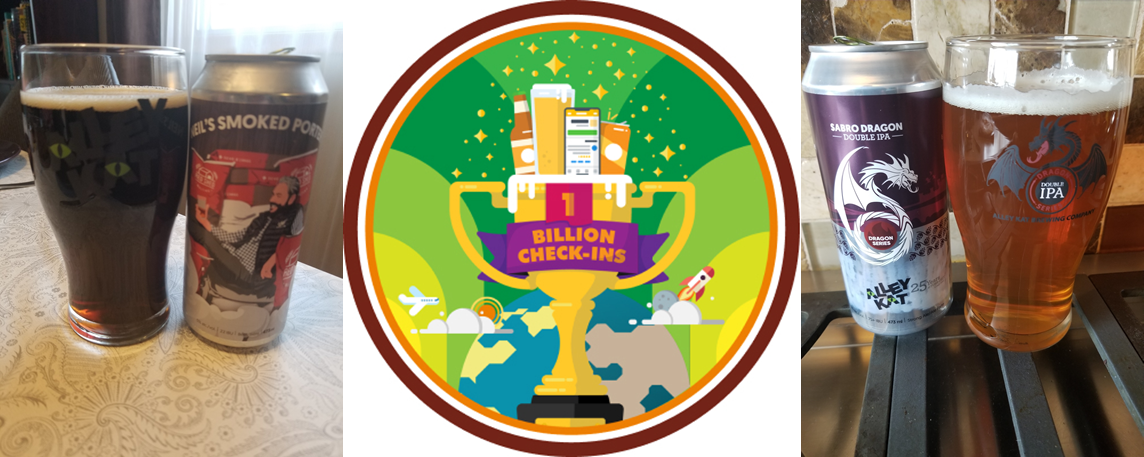

 RSS Feed
RSS Feed
